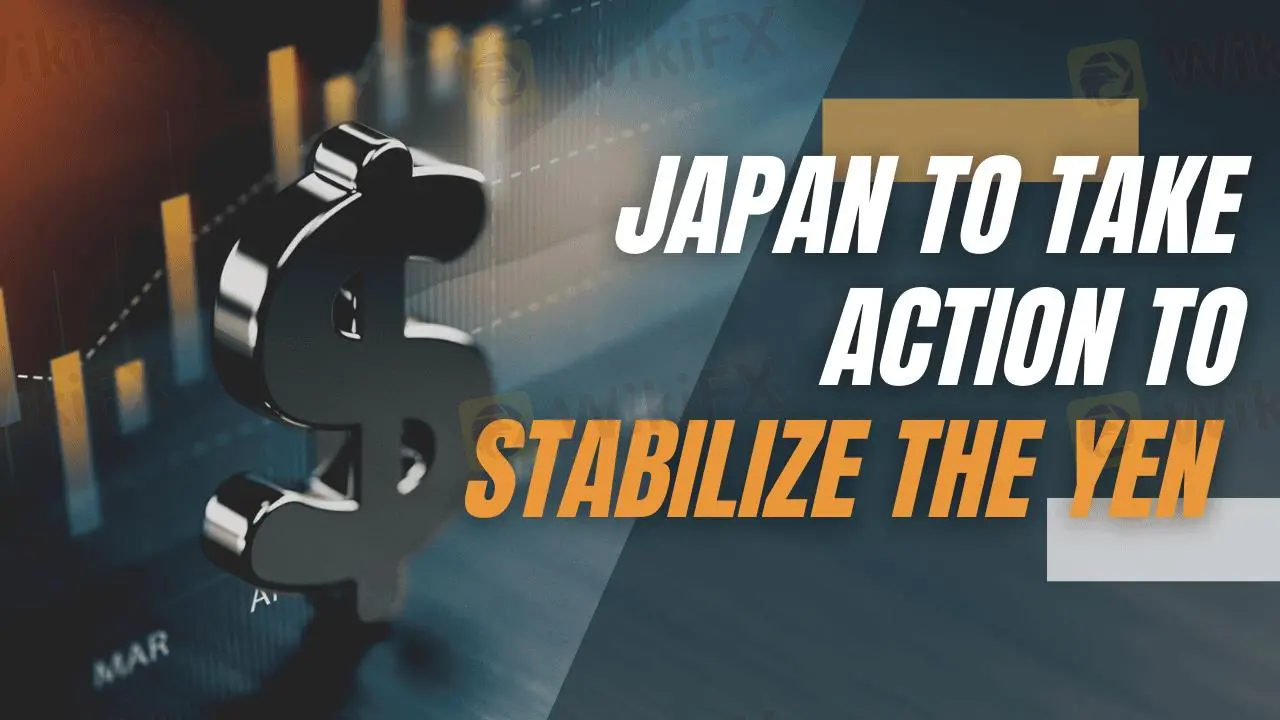简体中文
繁體中文
English
Pусский
日本語
ภาษาไทย
Tiếng Việt
Bahasa Indonesia
Español
हिन्दी
Filippiiniläinen
Français
Deutsch
Português
Türkçe
한국어
العربية
Japan to Take Action to Stabilize the Yen
Abstract:Japan faces yen depreciation due to interest rate gaps; officials plan measures to stabilize forex market volatility.

Since early 2022, the Japanese yen has depreciated by over 20% against the US dollar, primarily due to the interest rate differential between Japan and the US. Despite multiple interventions by the Japanese government in September and October 2022, as well as in April and May 2024, the yen has continued to weaken. On July 3, 2024, the USD/JPY exchange rate hit a 38-year low, with 1 USD equaling 161.96 JPY.
The persistent easing of monetary policy by the Bank of Japan (BOJ), in contrast to rate hikes by major central banks such as the Federal Reserve and the European Central Bank, has widened the interest rate gap between Japan, the US, and Europe. This divergence has reduced the yen‘s appeal to investors, leading to sustained selling pressure in the forex market. For Japan’s energy-dependent economy, the yens depreciation is particularly concerning, as it further inflates the cost of importing oil, natural gas, and other raw materials, exacerbating economic pressures on households and businesses.

To address the yen‘s volatility, Japanese officials have hinted at potential measures to stabilize the exchange rate. In a routine press conference, when asked about the yen’s continued weakness, Japanese Finance Minister Shunichi Kato stated, “Our stance has not changed.”
Last Friday, Kato noted the recent one-sided and sharp movements in the foreign exchange (FX) market. He further emphasized that appropriate measures would be taken to prevent excessive forex volatility.
Disclaimer:
The views in this article only represent the author's personal views, and do not constitute investment advice on this platform. This platform does not guarantee the accuracy, completeness and timeliness of the information in the article, and will not be liable for any loss caused by the use of or reliance on the information in the article.
Read more

CySEC issued warning over 10 Unlicensed firms
The Cyprus Securities and Exchange Commission (CySEC) has issued a warning against over 10 investment firms operating without proper authorization. These firms are not licensed to provide financial services and may pose serious risks to investors. CySEC advises the public to avoid dealing with unregulated entities

Know the Red Flags before Investing in Primarkets
Knowing the red flags of FX Broker is the most important act while you are thinking to invest your money in the Forex market and are enthusiastic about Forex trading.

Never Invest in These 5 "No License”- Scam brokers
These are scam brokers operating without licenses. Therefore, it becomes risky to trust these brokers for Forex trading. These brokers will most probably swindle your money and make you penniless. To avoid this situation, check out the list below carefully. This is the warning list issued by the Financial Conduct Authority (FCA).

Interactive Brokers Update
Interactive Brokers has introduced an exciting feature to its client portal
WikiFX Broker
Latest News
XTB Hack 2025: Major Security Breach Exposes Client Accounts
These are America's 10 weakest state economies most at risk in a recession
These are America's 10 strongest state economies best prepared for a recession
Federal Reserve quietly responds to Trump administration attacks over renovation
Tariff Windfall Drives Surprise $27 Billion US Budget Surplus In June
Top Wall Street analysts are upbeat about these dividend-paying stocks
Singapore's economy grows 4.3% in second quarter, beating expectations
What WikiFX Found When It Looked Into Emar Markets
MT4 vs MT5 Which Forex Trading Platform Fits Your Needs in 2025?
Stock futures slide on more Trump tariff letters, but are off worst levels of session: Live updates
Currency Calculator


